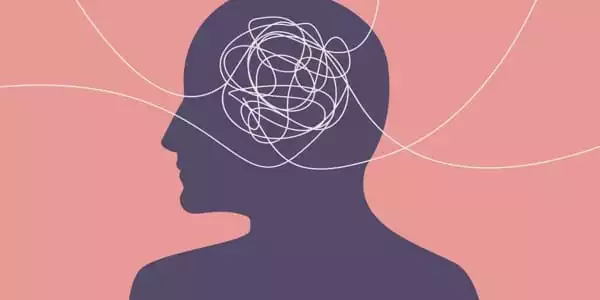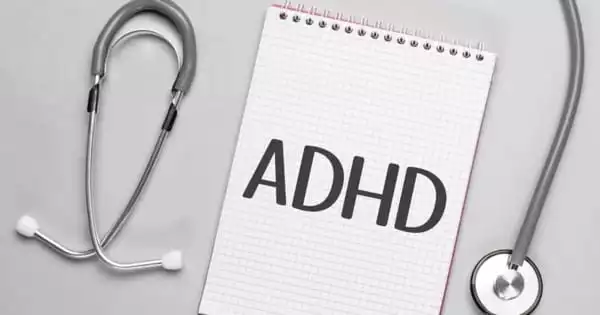Hoarding disorder is distinguished by chronic difficulty in discarding objects, regardless of their true monetary value. This leads to an overabundance of items that clutter living spaces and jeopardize their intended usage. Hoarding disorder causes significant anxiety and difficulties in socializing, working, and other aspects of daily life.
According to new research, people with Attention Deficit/Hyperactivity Disorder (ADHD) are much more prone to engage in hoarding behaviors, which can have a negative influence on their quality of life.
The study, which was funded by the British Academy and the Leverhulme Trust and published in the Journal of Psychiatric Research, discovered that nearly one in every five people with ADHD had clinically significant levels of hoarding, implying that there may be a hidden population of adults struggling with hoarding and its consequences.
Hoarding Disorder is a recognized disorder characterized by excessive collection, difficulty discarding, and excessive clutter. The disease can cause distress or difficulty in daily living, as well as contribute to despair and anxiety.
Hoarding Disorder is considerably more than simply collecting too many belongings. People with Hoarding Disorder have crammed their living spaces with so many objects and clutter that it interferes with their day-to-day functioning, resulting in a worse quality of life, anxiety, and sadness.
Professor Dr. Morein
Previous studies on hoarding disorder have primarily focused on elderly females who self-identify as hoarders and seek care later in life. This new study, directed by Dr. Sharon Morein of Anglia Ruskin University (ARU), recruited 88 participants from the Cambridge and Peterborough NHS Foundation Trust’s adult ADHD clinic.
The study discovered that 19% of this ADHD group had clinically severe hoarding symptoms, were in their 30s on average, and had an equal gender split. The researchers discovered greater hoarding severity among the remaining 81 percent, but not to the extent that it seriously harmed their lives, when compared to the study’s control group.
ADHD is a neurodevelopmental disorder with attention issues as one of its hallmarks. “Inattention” includes difficulties concentrating as well as significant challenges with organization, forgetfulness, procrastination, and being easily distracted to the point where daily functioning is impaired.

The researchers asked the same questions about ADHD symptoms and impulsivity, hoarding and clutter levels, obsessive compulsive severity, perfectionism, depression and anxiety, and everyday function on a closely-matched group of 90 adults from the general population who did not have an ADHD diagnosis, and discovered that only 2% of this control group exhibited clinically significant hoarding symptoms.
They then repeated the experiment with a larger online sample of 220 UK people to see if similar patterns emerged, and discovered that only 3% of this group had symptoms.
“Hoarding Disorder is considerably more than simply collecting too many belongings,” said Dr. Morein, Associate Professor in Psychology at Anglia Ruskin University (ARU). People with Hoarding Disorder have crammed their living spaces with so many objects and clutter that it interferes with their day-to-day functioning, resulting in a worse quality of life, anxiety, and sadness.
“Overall, we discovered that those who had been diagnosed with ADHD were more likely to have hoarding tendencies. This is significant because it shows that hoarding does not only impact persons in their older years, who have been the focus of much of the study into Hoarding Disorder thus far, “Our findings also suggest that Hoarding Disorder should be routinely tested in people with ADHD because they do not typically disclose associated challenges, despite the fact that they may be interfering with their daily life. Similarly, many patients who are currently being treated for Hoarding Disorder may also have undiagnosed ADHD.
“By raising awareness among clinicians and persons with ADHD about the link between ADHD and hoarding, we may be able to provide more effective long-term management, as hoarding often increases over time.”
People with ADHD who scored below the criterion for hoarding disorder still reported significantly more hoarding concerns than the control group. Furthermore, those with more severe attention problems were more likely to report hoarding issues.
The fact that hoarding symptoms were evaluated using self-reported questionnaires is one of our study’s limitations. Future research should replicate the findings using trained clinical staff conducting interviews to measure hoarding. Future studies should look at why there is a link between ADHD and hoarding disorder.
In general, one barrier to understanding hoarding and offering effective therapy is that many people with hoarding problem have inadequate insight. This implies they may not recognize or admit that they have a mental health disorder, or that they have a problem at all.














